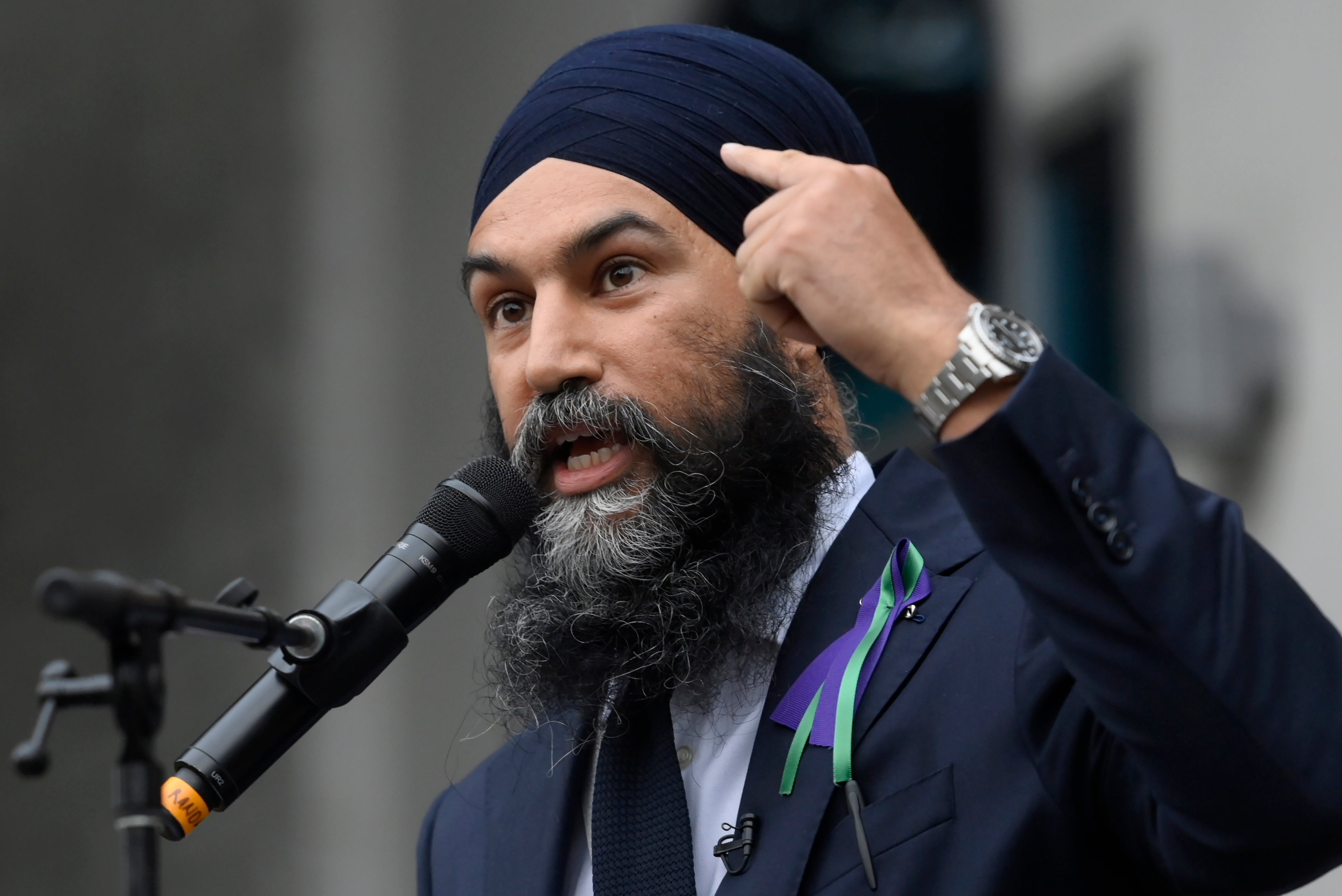Canada's NPD leader says end of agreement with Liberals makes election timing uncertain
The leader of Canada’s leftist New Democratic Party says that policies supported by Liberal Prime Minister Justin Trudeau and Conservative Leader Pierre Poilievre have only hurt Canadians, although he didn’t say if he was willing to trigger a snap federal election soon

The leader of Canada’s leftist New Democratic Party said Thursday that policies supported by liberal Prime Minister Justin Trudeau and Conservative Leader Pierre Poilievre hurt Canadians, although he didn’t say if he was willing to trigger a snap federal election soon.
Jagmeet Singh had said a day earlier in a video posted on social media that he had “ripped up” a key agreement with Trudeau’s Liberal government, that helped keep the minority government in power.
During a news conference in Toronto on Thursday, Singh acknowledged that his surprise decision to pull support from the supply and confidence agreement could move up the date of Canada's next general election, expected to be held in October 2025.
“I ripped up the supply and confidence agreement with Justin Trudeau, and we know that makes the election timing more uncertain,” Singh said.
Singh declined to provide a specific timeline about when he could vote against the Liberals in a no-confidence vote.
“I will look at any vote that comes before us and we will make a decision in the best interests of Canadians, as any minority government normally operates,” he said.
The Liberals currently have 154 seats in the 338 Canadian House of Commons. The Conservates hold 119 and the NDP 24. The Bloc Québécois, a party based only in Quebec and devoted to Quebec sovereignty, has 32 seats.
Singh and Trudeau reached the supply and confidence agreement in March 2022, committing the Liberals to implement several NDP priorities such as dental care and pharmacare in exchange for the NDP caucus supporting the Liberals on key votes.
Sanjay Jeram, a political science professor at Simon Fraser University in Burnaby, B.C., said the agreement always “had more bark than bite” and didn’t give the NDP any official representation in the federal government, like some coalitions in other countries.
Most polls show the Conservatives well ahead of the Liberals with the NDP sitting third, making it difficult to see what the New Democrats could gain from a quick election.
“Where the polls are now, there is no realistic option of them forming government,” said Jeram. “It’s hard to really understand what they’re aiming for," he said, adding, "Do they want to become the official opposition?”
Jeram said there may be concerns in the party that the Conservatives have been trying to appeal to working class voters, which could drain away support from the centre-left NDP. An early election may halt this erosion of support.
Libby Davies, who spent 18 years as an NDP member of Parliament, said ending the agreement puts pressure on the Liberals.
“Will it increase the likelihood of an election sooner? That’s part of the risk,” said Davies. “It’s the tension of a potential election that keeps the Liberals on their toes and allows the NDP to have a lot more leverage.”
With the Liberals trailing badly in the polls, and Trudeau very unpopular, she doubts they want an election.
“I don’t think they want an election right now,” she said. “It really puts the pressure on the Liberals to decide; are they going to listen to whatever demands come from the NDP?”
In a campaign style speech, Singh criticized both Trudeau and Poilievre.
“Justin Trudeau has let Canadians down,” said Singh. “Trudeau’s Liberals can’t deliver change. They are too weak and too selfish to stop Pierre Poilievre and the Conservatives."
As for the Conservatives, Singh accused them of wanting to reduce health care benefits and encourage corporate greed.
“Conservative cuts would take things from bad to worse,” he said.
He pitched the NDP as the party of hope.
“There’s a battle ahead of us, the fight for the Canda of our dreams,” said Singh. “The fight to restore hope and the promise that working hard gets you a good life.”
Davies, the former member of parliament, said if the NDP forces an early election they must explain their reasoning.
“Mr. Singh needs to present an NDP vision and what that looks like for the country," she said. “The longer he (was) tied to that agreement, the harder it is in some ways because all the good things that happened, the Liberals will take credit for.”